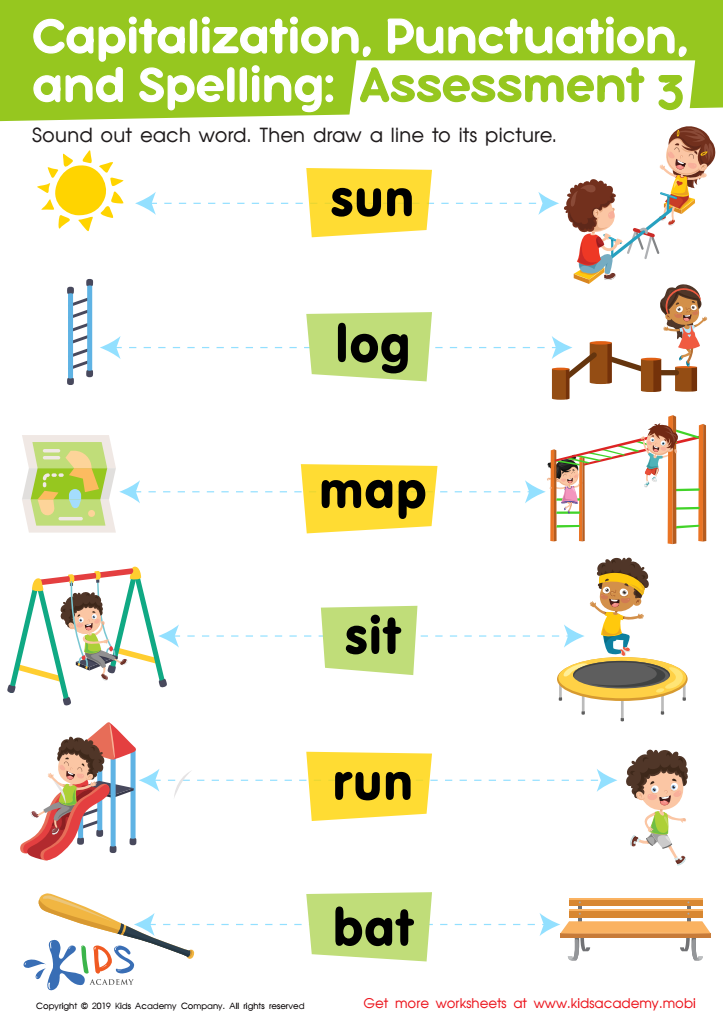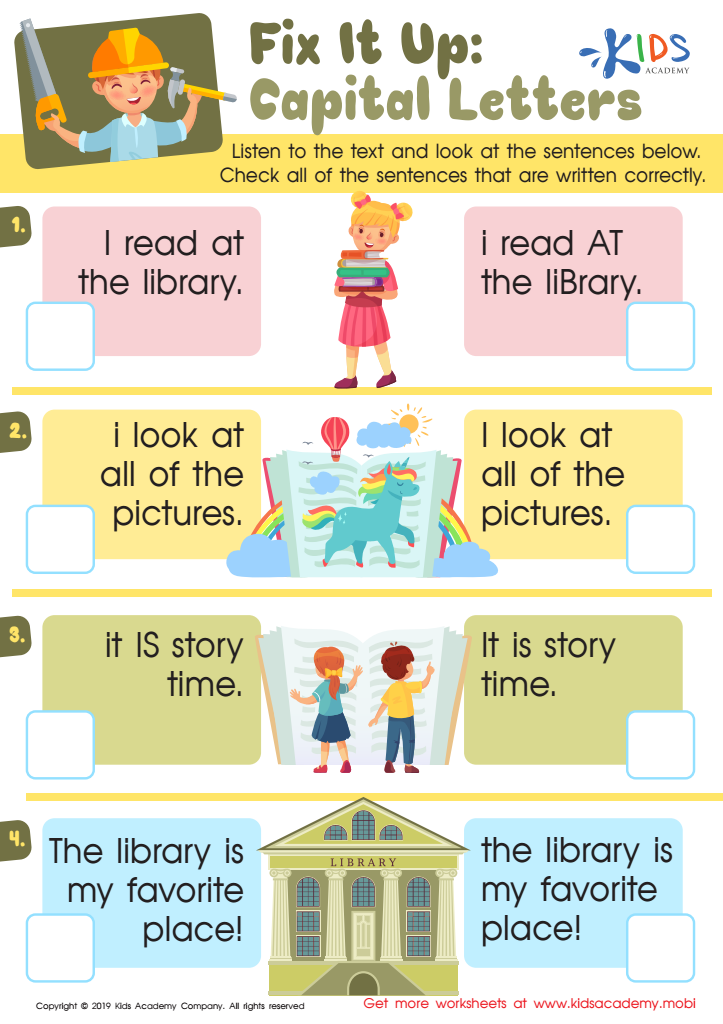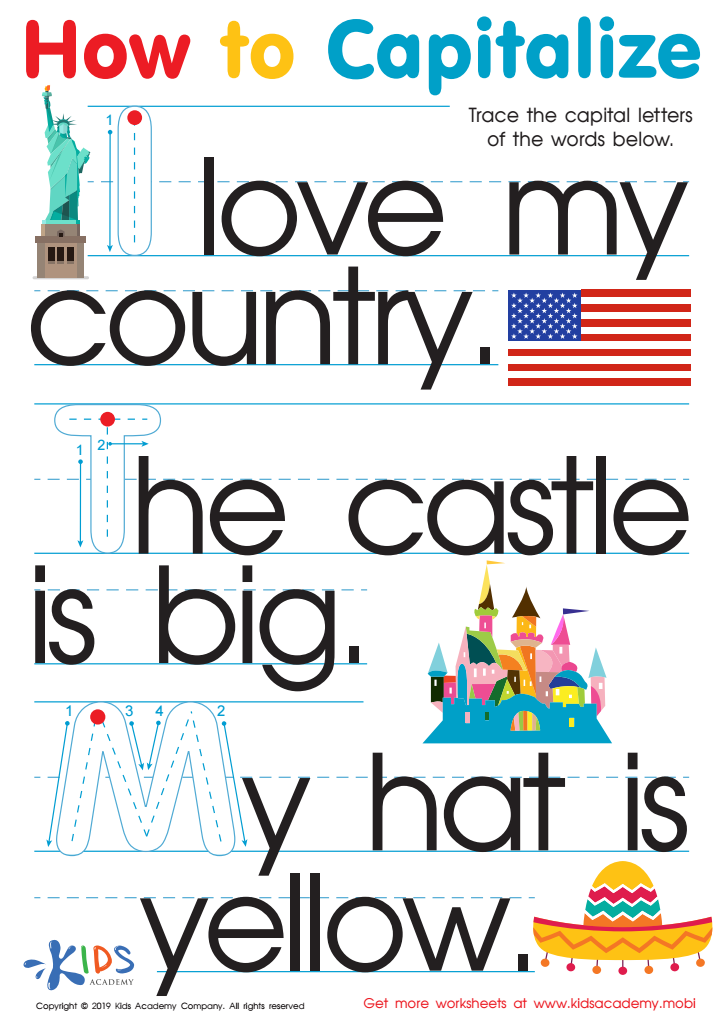Sentence structure Capitalization Worksheets for Ages 3-5
3 filtered results
-
From - To
Introducing our engaging Sentence Structure Capitalization Worksheets, designed specifically for children ages 3-5. These interactive activities help young learners understand the basics of sentence formation while practicing proper capitalization. With delightful illustrations and simple instructions, children will explore how to construct sentences correctly, enhancing their writing and literacy skills. Our worksheets focus on promoting creativity and expression, ensuring kids enjoy the learning process. Ideal for home or classroom use, these resources are perfect for developing foundational writing abilities and fostering a love for language. Encourage your child’s writing journey today with our fun and educational worksheets!


Capitalization. Punctuation. Spelling. Assessment 3 Worksheet


Fix Capital Letters Worksheet


How to Capitalize Worksheet
Sentence structure and capitalization are fundamental aspects of early literacy development for ages 3-5. Understanding these concepts serves as the building blocks for effective communication and writing skills.
For parents and teachers, fostering knowledge of sentence structure helps children learn how to express their thoughts clearly. When children grasp the basics of creating sentences—with a subject, verb, and proper punctuation—they become more confident communicators. This ability not only enhances their verbal skills but also lays the groundwork for future writing development.
Capitalization is equally important as it teaches children the conventions of written language. Recognizing when to use uppercase letters—such as at the beginning of sentences or for proper nouns—instills a sense of order and professionalism in their writing.
Moreover, when parents and teachers emphasize these elements, they promote cognitive and language development, enabling children to organize their ideas logically. This understanding also correlates to reading comprehension, as children become accustomed to the structure of written language they encounter in books and other media.
Ultimately, simple lessons on sentence structure and capitalization empower young learners, fostering not just their literacy skills but also their love for reading and writing, which are crucial for lifelong learning.
 Assign to My Students
Assign to My Students



















